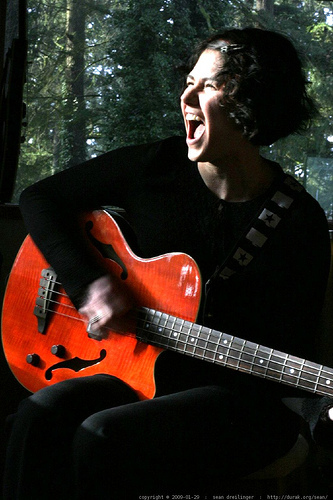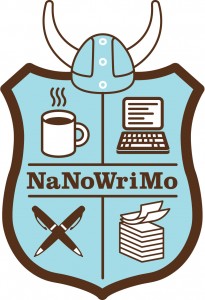 In Thursday’s and Friday’s posts last week, I answered the first two in a series of three questions from @Porter_Anderson about the interplay between platform, timing, and genre.
In Thursday’s and Friday’s posts last week, I answered the first two in a series of three questions from @Porter_Anderson about the interplay between platform, timing, and genre.
In the first post, I emphasized that if you are a professional writer then writing goes in the center of your career no matter what. If you sell words that you write in any way shape or form—and yes, I also mean if you “sell” them for free, as in a blog—then writing is the heart in your career’s body.
In the second post, I emphasized that no matter what kind of writer you are, you still need a platform. If you spend any amount of time online, you will no doubt encounter lots of debate devoted to the topic of, “Yes, but I’m an XYZ type of writer, so I don’t need to worry about platform, right?”
Not so! Every writer will need a platform sooner or later. In fact, most freelancers benefit from cultivating a platform over time. So a freelancer who might write an e-book or book some day, should be establishing and growing a platform while meeting deadlines now.
A future novelist, who is still working on flash fiction or short stories, can also benefit from cultivating a platform now.
And the same applies to the future memoirist, who is writing and selling personal stories.
You don’t have to have published something long to start building your platform, and it will probably only help to start publishing some short pieces in the meantime.
Part three of Porter’s question last week brought up the issue of how long is all of this going to take?
I expect he meant how long until bestsellerdom? But maybe not. Whether you fancy yourself the next bestseller waiting to happen or a writer of slow and steady gains, here’s how long it’s going to take…ready? It’s going to take the rest of your life.
You want your writing career to belong to you, don’t you? You don’t want to be one of those flash-in-the-pan writers, who scores one big hit and then disappears to write the elusive next big hit, never to be heard from again, do you?
There is no fairytale ending for writers that resembles the latest media story of rosy and impossibly easy publishing success. No matter how much you want to believe that the fairy tale is going to happen for you and, even if it does, you still have to run your writing career as a business…tomorrow.
For every writer who is making millions on the richest writer list, there are thousands of writers who are stridently resistant to aligning earning with their words. And those starving writer-artists of today are still going to be starving tomorrow.
More than anything, the starving artist mentality cuts you off from the myriad of possibilities for selling your words today—and the possibilities for earning have become more multitudinous, not less. So don’t cripple your future earnings with an old-fashioned publishing success fantasy. Don’t separate writing from your ability to earn. Don’t sacrifice everything today for an uncertain future tomorrow. Align your behavior today with the outcomes you hope to achieve tomorrow.
When you keep everything in alignment from the beginning, you don’t need to make adjustments later. If you pretend to be one thing—a blogger who doesn’t care about earning money, for example—you risk being perceived as a hypocrite when you suddenly shift to a writer who actually does care about making money. (Besides, we knew you cared all along.)
Selling ourselves as prosperous professionals is as challenging for writers as keeping writing at the center of our careers (so many distractions!) and embracing platform development (because we’d like to be the overnight success exception rather than the slow and steady career build that is the real story behind 99 percent of the successes we hear about).
Your writing career done right is like a slow-roasted meal. The flavors blend, the spices intermingle, and the repast you eventually serve with a flourish is deeply nourishing and satisfying for the reader.
But if you scramble for shortcuts to success, make too big of a deal about your early efforts without realizing that there is still more to do, or don’t appreciate your own contributions enough to analyze your natural dynamic and perceive what else you might have to offer today, you will likely struggle with yourself and alienate your potential readers instead of keeping your focus on serving the reader and drawing more readers in.
When you put writing at the center of your career and get busy building your platform (not just talking about building one), you clock in for the long-haul of slow and steady learning and earning. Then you can make sturdy, sensible business decisions.
Publishing possibilities abound, not just tomorrow, but also today.
These have been fun questions to answer and have already lead to more questions from readers. The next question I’ll answer comes from Leigh Ramsey on my Facebook page. She said:
Thank you for this encouragement. I needed these exact words today as I gradually see my dynamic emerging. I struggle to see it in myself and therefore rely on the reflection I see in the comments I get from “fans” (‘You inspire me to be and do more;’ ‘I love that you just go for the gusto.’) I find more and more that my role is one of champion. I want to see people (women especially) embrace life and be the best them that they can be and eat up all that life has to offer. Thanks again for playing the role of ‘auto-focus’ for me today, further fine-tuning my direction.
And then she asked:
Christina, from what I’m reading from Part One (and Two) and intuiting, it seems that you’d say an author’s dynamic and her voice are different. Dynamic seems to me “the whole package” of the writer, from his public appearances and online presence to the platforming issues, much more so than voice. (And voice would have to come way before dynamic in this kind of framework.) Am I misreading your thoughts?
Leigh is mistaking my message somewhat. So I’ll answer her questions in detail on Thursday. If you would like to keep the discussion going, send me your questions in the comments or at christina at christina katz dot com.
I have a lot more to say about all of these topics (and more!) in my forthcoming book, The Writer’s Workout. Now is your chance to pre-order so you can be among the first to receive a copy before the New Year. 🙂
If you would like to get to work sooner, please check out my first two books, Get Known Before the Book Deal and Writer Mama. More about all of my books here.
Thanks again to Porter Anderson for the spotlight and the questions and to Jane Friedman for hosting Porter’s column, Writing On The Ether.
~ Grand Canyon by ♀Μøỳαл_Bгεлл♂_BACK_FROM_PRAGUE
 2011 has been something of a mess in publishing as publishers scramble for survival amidst full systems change.
2011 has been something of a mess in publishing as publishers scramble for survival amidst full systems change.



